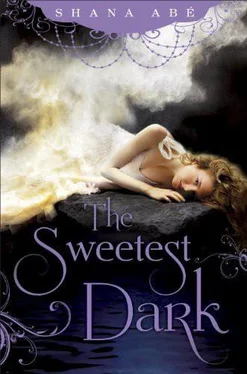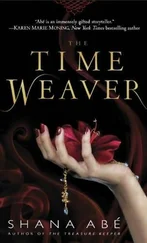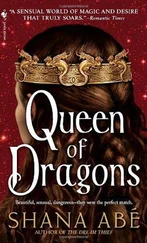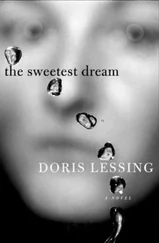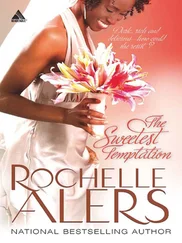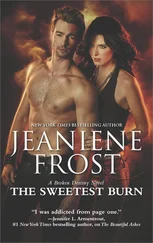“–Because you’ll be safest there, that’s why. I’ve made up my mind about this, Sally, you know that I have, so do stop arguing with me about it; you’ve given me the migraine. I need you to get on that train this instant —”
“–It’ll be over in no time. Right? Right? We know that. Buck up, son, there you are! Milk a few cows for a few weeks, and there you are. Home again quick as a wink, m’boy, I swear.”
There was no one accompanying me to offer any lies about returning to the city soon. I’d left the foundling house alone, astonished enough that they’d paid for the hansom cab to get me to the station. It would have been a very long walk.
I turned my gaze to the ceiling once more, inhaling the scent of damp wool and biscuits and tea, watching the billowing steam from the trains wind upward in corkscrews, condense into rows of silvery tears strung along the steel ribs.
Then I moved past Bobby and his mum, shouldering my way through the crowds to the train that would take me away from this place.
What with the dismally methodical determination of the Germans to blow us all to smithereens, it seemed a strange miracle none of the glass above me had yet cracked.
...
“Ticket, luv?”
The ticket agent stood over me, his gloved hand flat out in front of my nose. I’d been daydreaming, gazing out the window at the last looming shadows of the city whipping by. With my eyes half closed, with my breath clouding the pane, the outlying dregs of London became one long, lovely smear of mist.
The agent startled me out of my reverie; my head jerked back and my hat mashed against my seat.
“Er—sorry—”
“Righto,” he said cheerfully enough, but his hand didn’t move.
Ticket, ticket—I straightened my hat and patted my empty coat pockets. Where had it gone? I’d begun to run both hands rather desperately down my skirt before I recalled I’d stuck it in the suitcase at my feet.
I bent over to snap open my case. The stout woman crammed next to me shifted irritably. The third-class compartments had rows of narrow wooden benches and too many passengers and precious little else. My bench mate had been pushing her boot against my bag for the last half hour, as if she could shove it through the wall of the train to get it out of her way.
She reeked of days-old sweat and chickens. I wished I could shove her out of the train.
“All the way to Wessex, then?” the agent inquired, still jovial, his hand punch biting holes in my ticket with a series of rapid click-click-click s.
I nodded.
He cocked his head and gave me a dubious squint. “Land Girl, izzit?”
I knew I looked young; I was small and angular in all the wrong places, something the too-tight coat seemed to emphasize. But the Land Girls, those strapping city girls headed out to England’s farms to finish the work all our fighting young men could not do, were usually at least eighteen. However old I actually was, I knew I was nowhere near that.
“School,” I said, and the man’s face cleared. He gave me back my ticket.
“Aye. Wessex, then. Good luck, luv.”
“Thank you.”
He walked on. As the train rocked back and forth, the chicken-woman began to brush at the wrinkles in her dress, using the movement as an excuse to force me harder to the wall. She spread her legs and jammed her foot up against my case again.
I had not grown up in the halls of Blisshaven for nothing. I freed my own foot and kicked down against her instep. For someone my size, I was surprisingly strong.
“Oh, I’m awfully sorry,” I said sweetly, meeting her outraged look. “Was that your foot? I had no idea. It’s so dreadfully tight in here, don’t you agree? I swear, I can hardly breathe.”
I had to do that only twice more before she got up and left.
...
The hours crept by. As the sky beyond my window grew glummer and darker and the stops more frequent, the train began to empty. Around four I rummaged in my case and found the meal that had been packed for me back at the Home: an apple, a thick slice of buttered bread, and an actual, amazing seared pork sausage.
The Home had never been overly generous with food, and meat was already becoming scarce. I stared down at the sausage in its waxed-paper packet, genuinely shocked that someone in the kitchens had thought to give it to me. Perhaps it was meant as a final farewell.
The air raids were taking their toll, and the government had recommended sending as many children out of London as possible. Blisshaven itself had been hit nearly right off. No one had been killed, but the entire northern section, a decrepit warren of leaky pipes and peeling paint that had served as our schooling arena, was now rubble. Most of us considered it an improvement.
So the Home had been emptied. I was, in fact, the very last orphan to leave, and I knew this was not because I was the eldest or the youngest or the least or most attractive, or any of the other rumored criteria that had been whispered about the dormitory in the days after the hit.
I knew I was the last because I was tainted. I had been sent to Moor Gate.
All the other wards had been scattered to the four corners of the kingdom, sent to whichever other foundling homes had room to take in more of the unwanted.
But for me. I hadn’t been assigned to another orphanage.
“The Iverson School for Girls,” Mr. H. W. Forrester had informed me, examining me like a nearsighted owl from over the tops of his spectacles. “It enjoys a sterling reputation. You are fortunate indeed they had an unexpected opening for a new charity student.”
“Yes, sir,” I had replied. I had been summoned to the hallowed office of the director, seated with well-mannered precision at the edge of the chair before his desk. The room was cramped with bookcases and cabinets and the lace curtains behind him were caked with dust; it was a little surprising more of it hadn’t flaked off from the air strikes.
Mr. H. W. Forrester had fleshy jowls and salt-and-pepper hair greased with pomade and veiny, restless fingers that tended to tap across the scattered sheets of paper before him. I was very careful never to look even once at the diamond stickpin in his tie.
“It’s on the southern coast, set near Idylling. Seat of the dukes of Idylling. The Louis family, you know.”
“Oh,” I said.
“Lovely area. I myself spent a holiday there once.” He leaned back in his chair, his gaze taking on a faraway cast. “Sandy beaches. Balmy breezes. One may sea-bathe in utter comfort… .”
I counted silently to twenty, then cleared my throat. “What happened to her, sir?”
Mr. Forrester lowered his gaze back to me. “To whom?”
“To the other girl? The one who left the opening for a new student?”
“Why, I’m certain nothing happened to her, Eleanore. Really, what a question. I trust you will manage to curb that macabre bent of yours once at Iverson. You won’t make many friends that way.”
“No, sir,” I agreed, and pressed my lips shut.
London wasn’t the only part of the country being attacked. The dailies were full of articles about how the Germans were beginning to bomb the coasts, as well, as far as they could go in their massive zeppelin airships.
Wessex. I’d bet the sterling school of Iverson had found itself with a sudden slew of student openings.
“The headmistress, Mrs. Westcliffe, has been made aware of your particular … personal history and has decided to take you in anyway. Provisionally, I might add. The duke himself sponsors the school, you know, and has granted it a very generous endowment for a select few impoverished students. You are an extremely lucky young woman, Eleanore.”
Читать дальше
